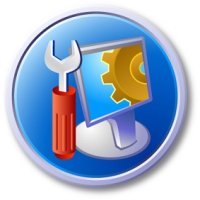Computer Cleanup Tips & Tricks
10 tips to increase your computer speed by doing computer cleanup. Computers can be very irritating whenever they become old and slow.
It helps to maintain your Desktop PC or laptop by servicing it once in a while. A well maintained computer can last for years and still exhibit good performance.
It does not matter whether it is an older version since these tips will work on the majority of computers. Give these tips a try and experience a faster, better performing computer model.
Top 10 Tips To Increase Your Computer Speed

- The first thing you should do is to defrag your computer cleanup. When you defrag the hard drive, it pulls together all of the fragmented files.
These files are normally scattered all over the hard drive. This makes it easier for the computer to open your files. Follow these steps to defrag your computer.
Go to the Start menu, Programs, Accessories, System, Disk Defragmenter. You should turn off your screen saver and disable the standby power option before you start defragging.
There are free automatic defragging applications on the World Wide Web.
- Step two is to clean out temporary files. Most computers keep lots of bundles of temporary files in the hard drive. This slows down your computer. To delete these files you should go to Computer, right click on your hard drive. Select properties and click on disk cleanup. Disk cleanup can be used to empty the recycle bin as well.
- The third tip is that you should clean up the registry once in a while. The registry might be corrupted. This may cause your computer to start issuing error reports as your system drags on like a snail. You can source for this as well. Some free models are also available.
- You should now run antivirus software. You can run a free one but ensure that you update it frequently. It goes without saying that you should perform a full antivirus scan on your computer from time to time. You can set it to run automatically from time to time.
- Now it's time to run your anti-spy ware software. There could be malicious applications spying on you and slowing down your computer.
- Review your startup options. The programs that are run every time you start your computer could be slowing it down.
- Use Windows Defender to fight against malware.
- Keep your windows program updated.
- Remove unnecessary software on the list of installed programs on your control panel.
- Finally you should increase your Virtual Memory Settings on your control panel.

See Also...




